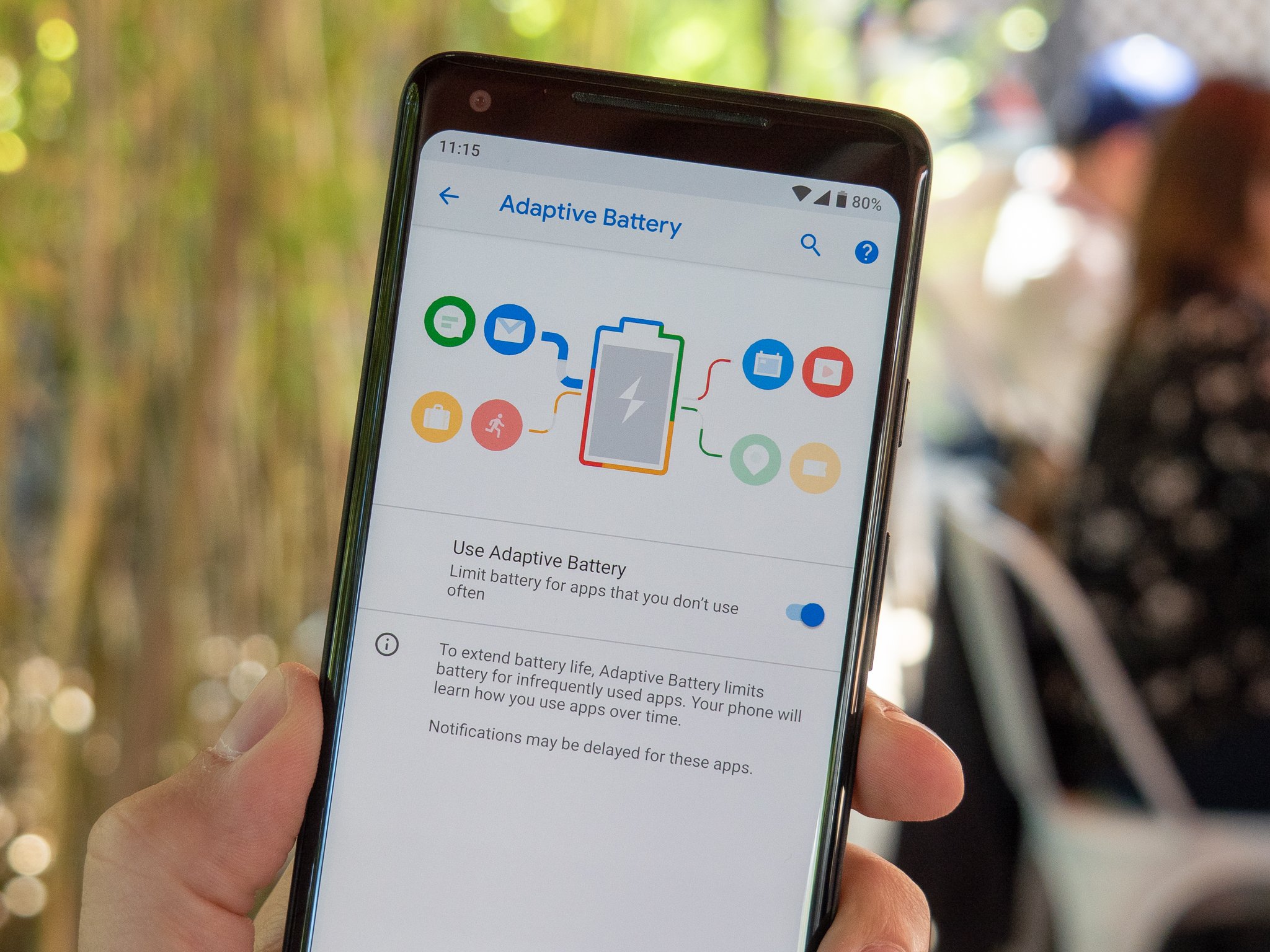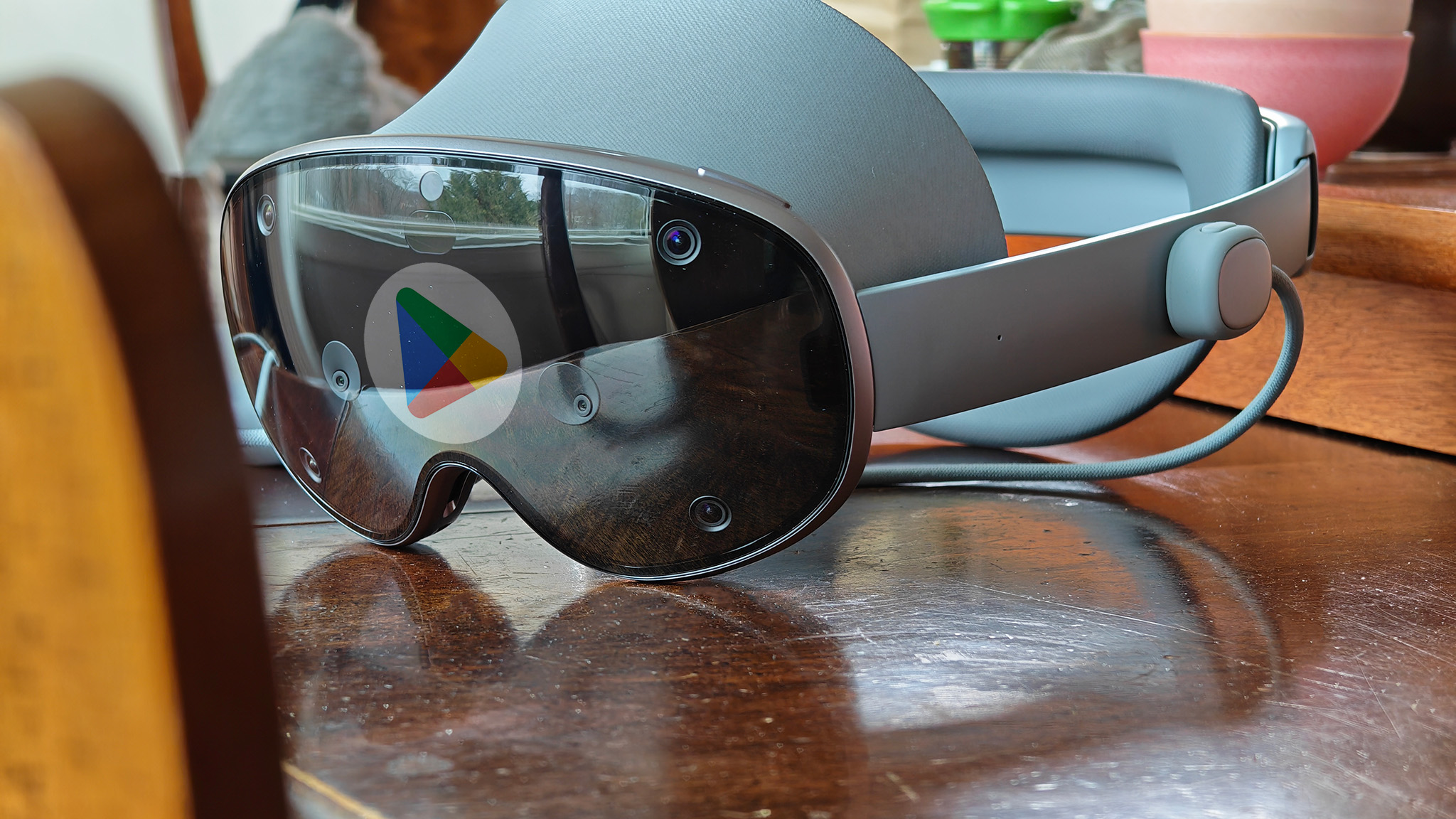Android Pie features you'll love: Adaptive Battery support

Get the latest news from Android Central, your trusted companion in the world of Android
You are now subscribed
Your newsletter sign-up was successful
Artificial Intelligence is something you'll hear a lot of talk about, but much of that talk can be a little confusing. That doesn't mean that AI can't be used to do simple things that have a real benefit to the way you use our connected things and Android Pie's Adaptive Battery is one of them.
It's one of the least spectacular yet most effective ways of using AI in our phones that we've seen so far. Google's AI can track the way you use the apps on your phone and know when to clamp them down so they aren't running wide-open in the background. This keeps those apps from using your network and the processor and frees up a bit of your phone's memory so something that you might want or need to use can stay there instead.
Adaptive Battery might not use AI to fly drones at night, but it can do something even better — save some battery power.
How it works is as simple as it sounds: The operating system knows when you open an app, when you use that app and when you "close" it. In Android when you close an app it may not really close. The OS is designed to keep apps alive in the background until there is no more room left in your memory for a new thing to open. It then has a set of rules — these are defined by the company/person who built the OS from the source code — about what apps it will purge from your memory to make room for a new one.
This makes sure apps you use the most are usually ready to open in an instant and that apps which need to do something in the background every now and then are able to without disrupting your experience. It's a good way to do things, but like most every idea there is always room for improvement, and Adaptive Battery refines the way it's done.
If, for example, you wake up every morning at the same time, sit down for a cup of coffee and open the Twitter app, the OS knows this. It also knows that you tend to keep the app open for 10 minutes or so and then tap the home button to go do something else. When that happens, Twitter is still running in the background. If you normally don't check Twitter again until lunch at noon, there is really no need for Twitter to keep fully running and refreshing in the background until 11:50.
We all are creatures of habit. AI can leverage that.
AI can "learn" these habits. In the example above, you might get a message when you look at your phone at 10 AM that says Twitter is still running, and if you like it can be optimized so that it saves some battery when the OS knows you'll not be using it, and start back up when it thinks you will. If you say yes, the Twitter app is changed to run in a very low-power state so it's barely running and not refreshing at its regular intervals. If Android can put Twitter to sleep every morning after you're done reading and tweeting, it saves battery power. For the most part, this works well.
You won't want to allow it to optimize apps you use throughout the day unless you don't mind waiting for a second or two for them to be completely reopened and then sync with their online data, but a lot of what we do is routine and can be managed by AI this way. Adaptive Battery might not be the sexiest way to use AI, but if it saves us some battery power it might be one of the best!
Get the latest news from Android Central, your trusted companion in the world of Android

Jerry is an amateur woodworker and struggling shade tree mechanic. There's nothing he can't take apart, but many things he can't reassemble. You'll find him writing and speaking his loud opinion on Android Central and occasionally on Threads.
